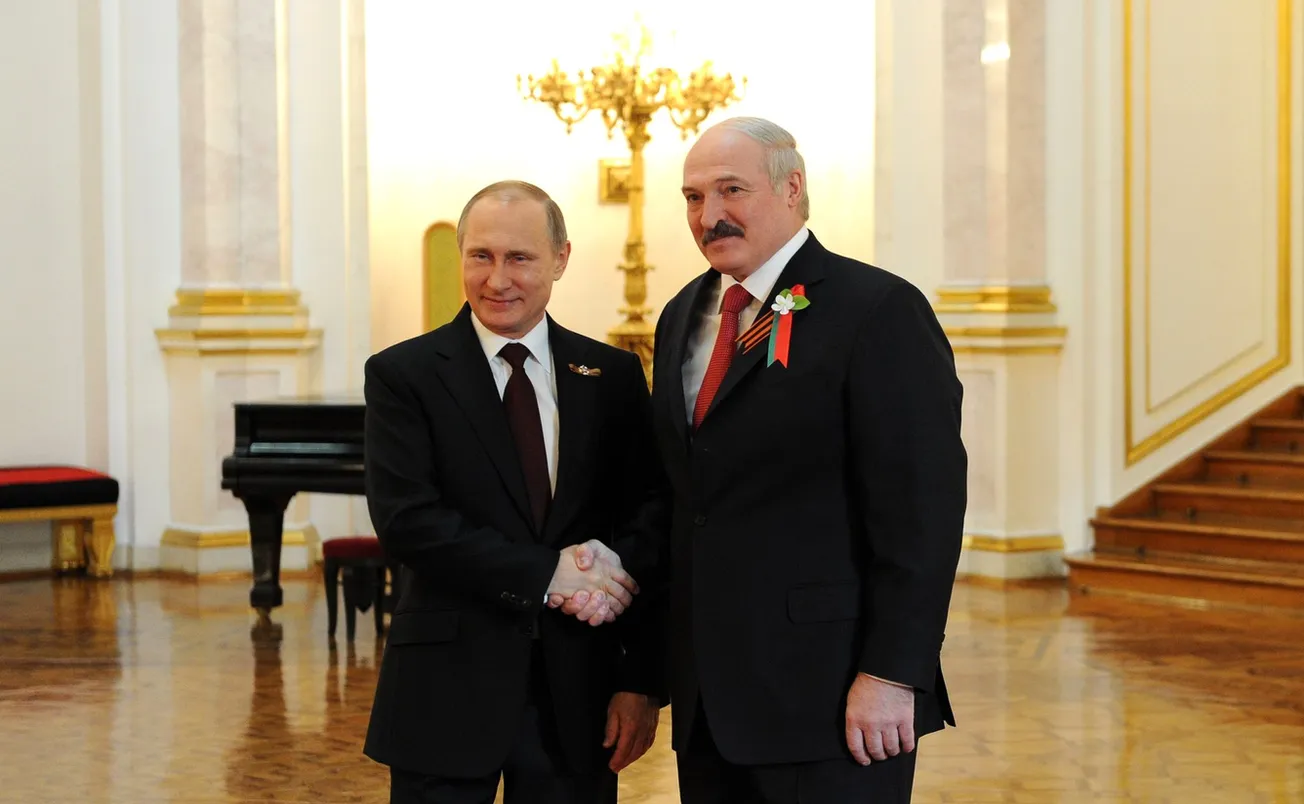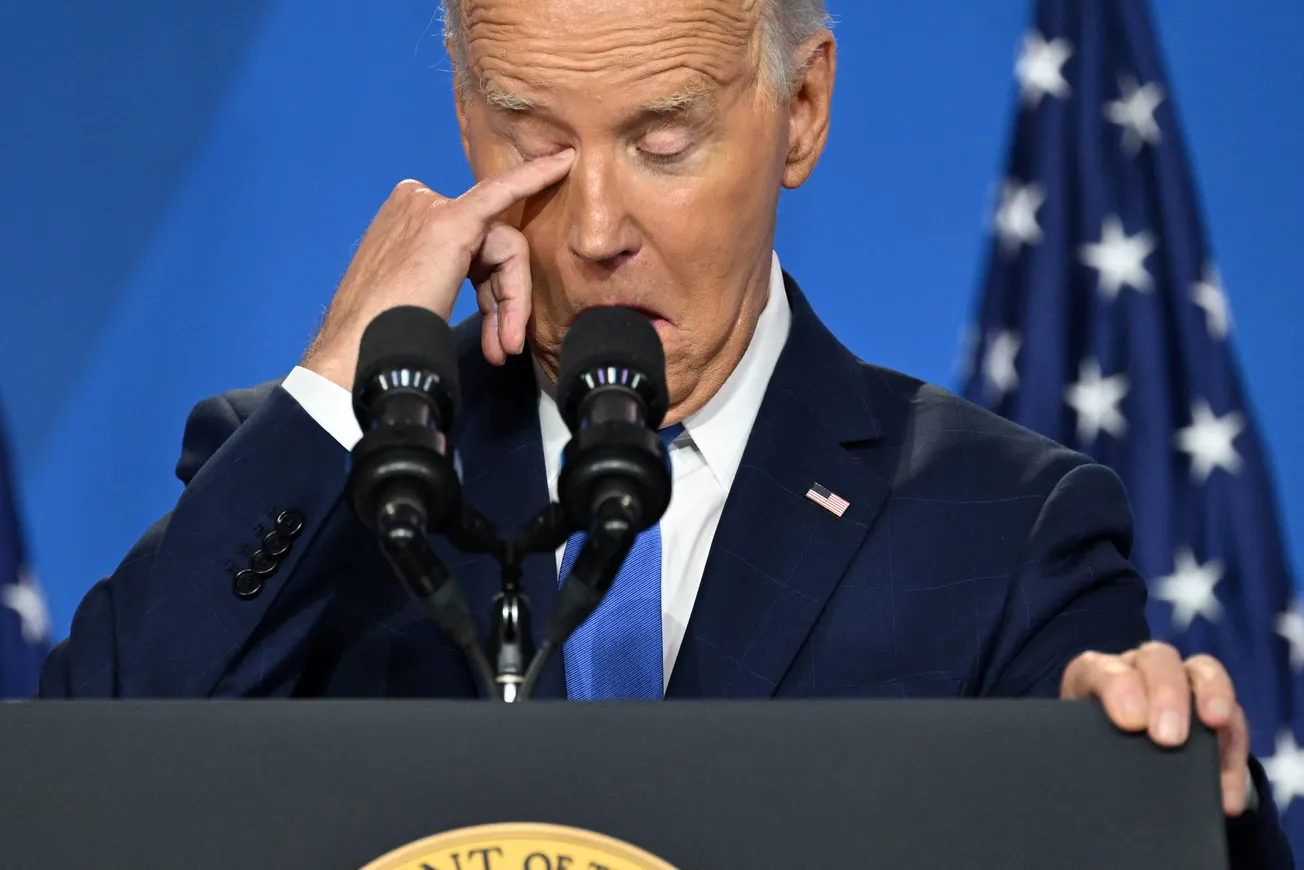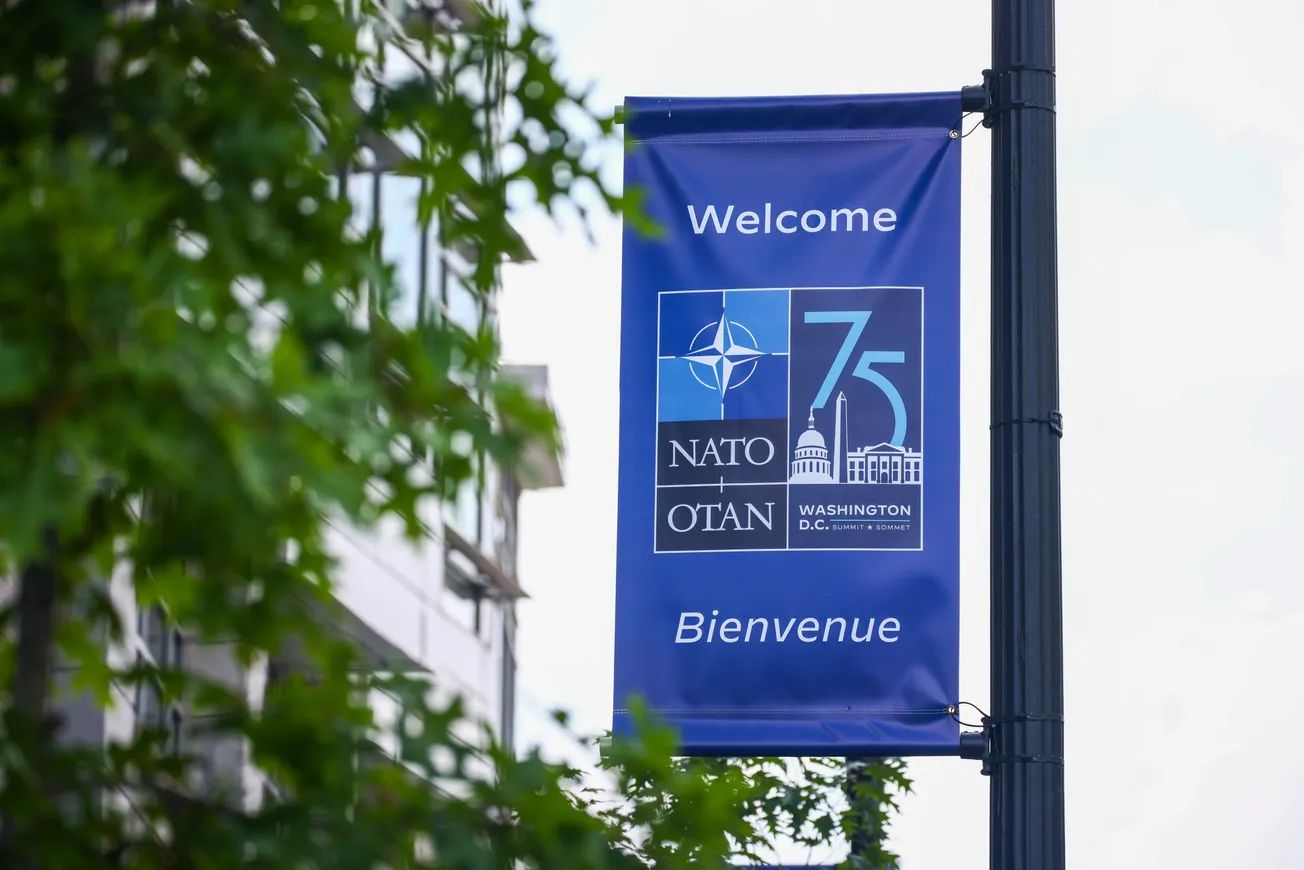Recent announcements from both sides have upped the ante in the Ukrainian War, now in its fourteenth month.
Recently, the U.K. decided to supply Kyiv with armor-piercing rounds containing depleted uranium. The United Nations Environment Programme (UNEP) describes the depleted uranium munitions, which can increase the military's ability to overcome defenses on tanks, as "chemically and radiologically toxic heavy metal."
In response, Russian President Vladimir Putin announced plans to position tactical nuclear weapons in Belarus. Meant to be used on the battlefield, these tactical weapons are relatively short-range. The small nuclear warheads and delivery systems are used to destroy enemy weapons and troops on the battlefield. Often referred to as "small nukes," they are capable of causing devastating fatalities and destruction.
With far more limited capabilities than strategic nuclear weapons, tactical weapons have never been subjected to arms control agreements. These are stored in high-security facilities and, unlike their strategic nuclear counterparts, are not "ready for launch" 24/7. They must be delivered to combat units from their storage location, a time-consuming process during a conflict.
With the latest move, President Putin is finally giving in to demands for tactical nuclear weapons to be positioned near air force bases and missile systems to deliver them. The storage facilities for the nuclear weapons are expected to be completed by July 1. Details regarding the number of nuclear weapons that will be moved to Belarus have not been released.
The Russian leader stressed that the control of the tactical nuclear weapons would remain with Moscow and hence does not violate any international treaties intended to stop the proliferation of such weapons. He cited that the U.S. has positioned nuclear weapons in Belgium, Germany, Italy, the Netherlands, and Turkey.
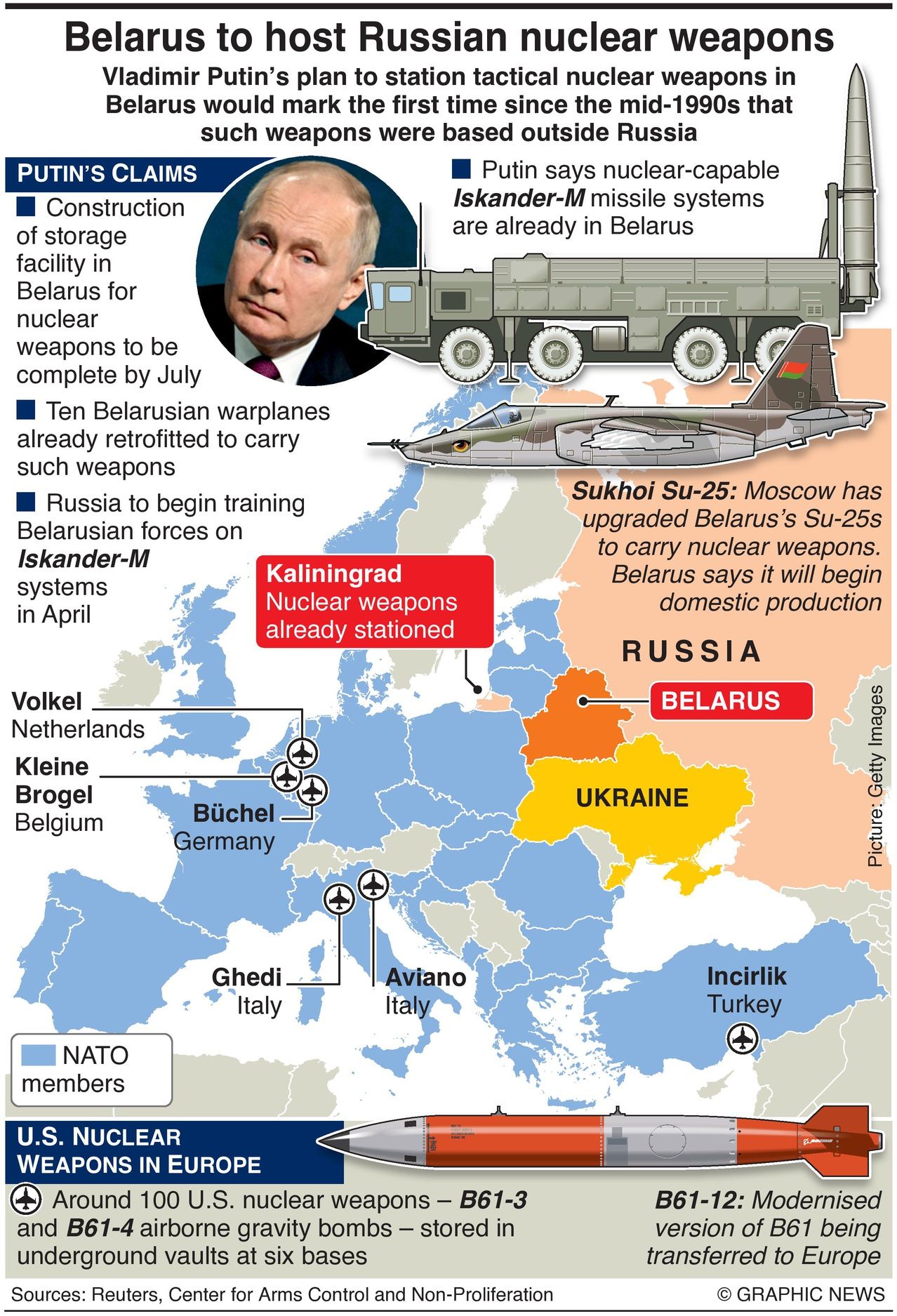
Minsk justified the move, saying, "Over the last two and a half years, the Republic of Belarus has been subjected to unprecedented political, economic, and information pressure from the United States, the United Kingdom, and its NATO allies, as well as the member states of the European Union."
"In view of these circumstances, and the legitimate concerns and risks in the sphere of national security arising from them, Belarus is forced to respond by strengthening its own security and defense capabilities."
Located between Russia and Poland and with international borders with two other NATO members - Lithuania and Latvia – the country has often acted as a buffer in the region. Belarus, the former Soviet state, had handed over the nuclear weapons located within its borders after the dissolution of the Soviet Union. President Lukashenko, one of President Putin's few allies, has developed close military and political ties with Russia in recent years. A member of the Russian-led military alliance, the Collective Security Treaty Organization, Minsk has already allowed Russian troops to launch attacks on Ukraine from its territory. Moscow also leases two military installations within Belarus's borders.
Both Minks and Moscow are going against their earlier stated positions. President Lukashenko held a constitutional referendum in February 2022, days after Russia invaded Ukraine, and the country formally shed its "Non-nuclear" neutral status. Mere days before making the announcement, President Putin had released a joint statement with Chinese President Xi Jinping stating, "All nuclear powers must not deploy their nuclear weapons beyond their national territories, and they must withdraw all nuclear weapons deployed abroad."
With the West's zeal to arm the Ukrainians unabated, the Russian President seems to have done an about-face. The latest escalation could push the Ukraine War into the nuclear realm – a possibility the world has been dreading for months.
Related Data
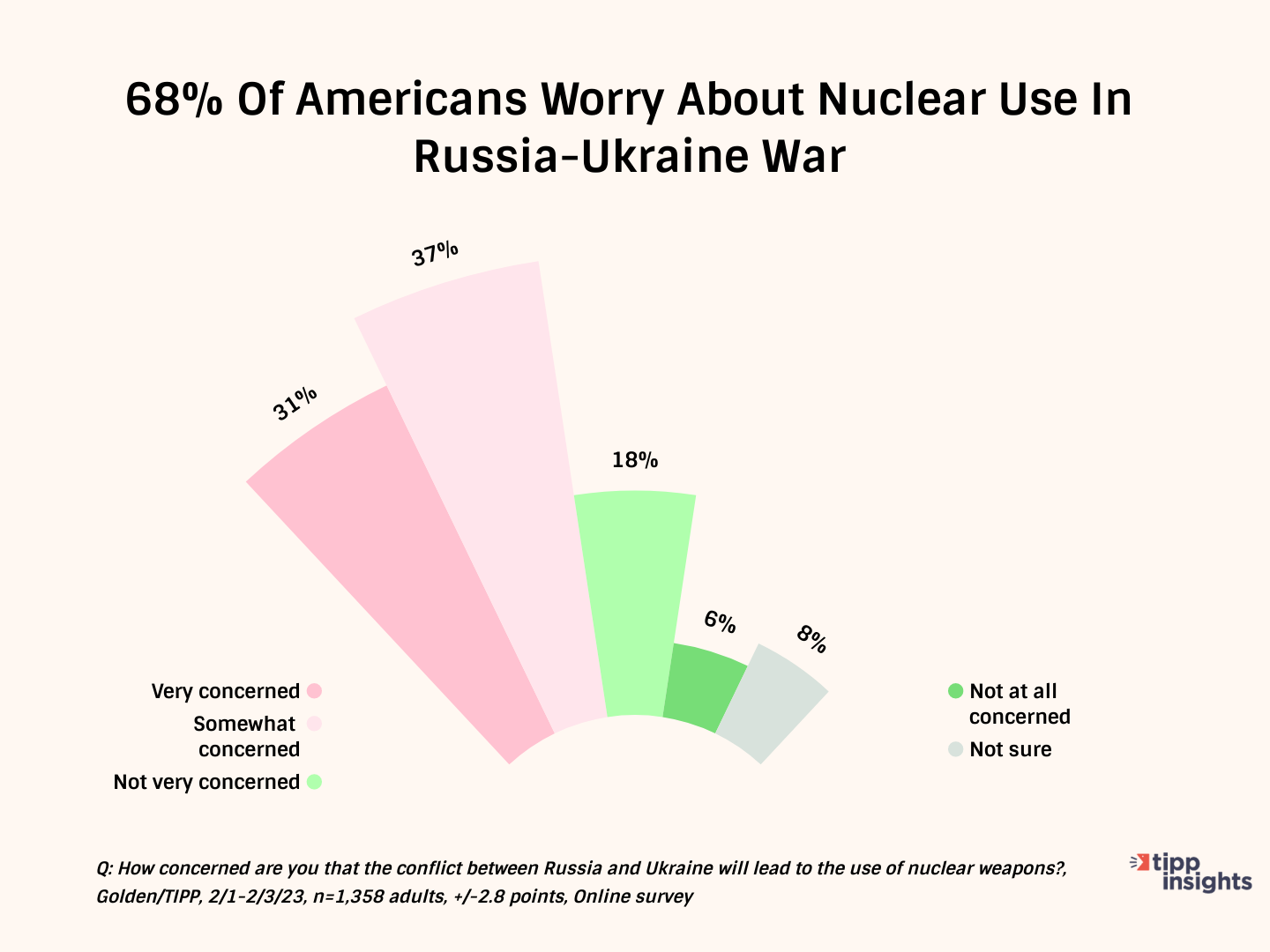
Like our insights? Show your support by becoming a paid subscriber!
Want to show your appreciation? Donate

